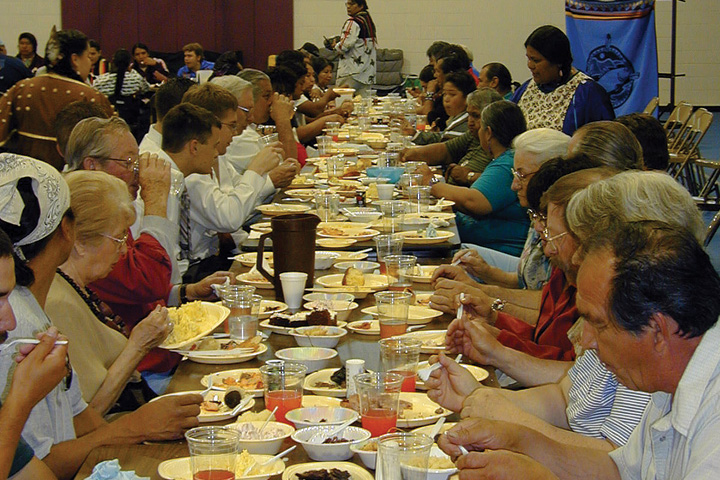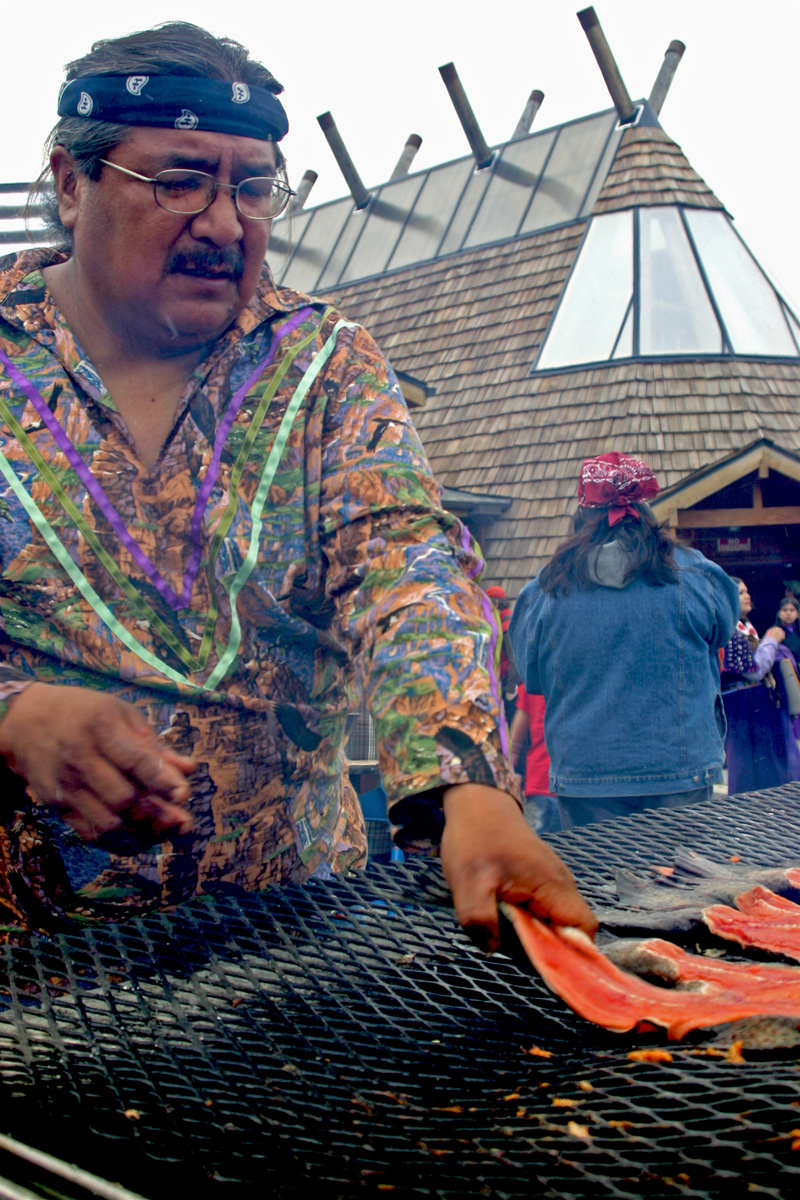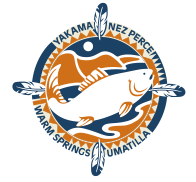First Salmon Feast
Salmon holds a place of honor at all tribal feasts.
Honoring the Salmon
The very first to come forward was Salmon, who offered his body to feed the people. The second to come forward was Water, who promised to be the home to the Salmon. In turn, everyone else gathered at the council gave the coming humans a gift, but it is significant that the very first two were Salmon and Water.
In accordance with their sacrifice, these two receive a place of honor at traditional feasts throughout the Columbia Basin. These ceremonies always begin with a blessing on and the drinking of water, followed by a prayer of thanksgiving on and the serving of the salmon. This ceremony reinforces the central role that salmon and water play in the health and culture of the tribal people in the Columbia Basin.
Tribal Traditions
Upon entering the longhouse, the women go to the south side and the men to the north. Each forms a circle, standing shoulder-to-shoulder. Drummers begin a series of prayer songs. To their right, the longhouse leader holds a brass bell, ringing it and using it to count the song sequences. During the service, Washut members sing, dance, or move with small dignified steps. Some of the songs thank the salmon for giving its life to feed the people while others remind those gathered of the traditional laws that must be observed.
“When the Creator created our Mother Earth, He gave it life,” explains the longhouse leader. “When the dawn comes on this sacred day, the light of our Father is here. This life is a sacred inherent right of our people. These songs speak of this life from the time that life began. We’ve always been alongside the animals, the trees, the grass, and all the roots that make the medicines and foods.” The leader reminds everyone that tribal people hold all these in great reverence, “because they too have a purpose – to nourish and strengthen our hearts, our minds, and our bodies.”
While the songs are still being sung, food servers bring out the food and set it in front of those assembled. The young men serve the “brothers” of salmon, deer, and other meats. The young women serve the “sisters” of the huckleberries, roots, and breads. Before the meal is eaten, the bell is rung as a signal for everyone to stand and join in a prayer song. The bell rings again, followed by the leader calling out “choosh,” which means water in Sahaptin (the language family common to the four tribes). This is the sign for the participants to pick up their cups of water and drink. After the drink of water, the meal is eaten.
When everyone has eaten his or her fill, a closing song is sung and a final call of choosh signals all to take one last drink of water.
Words of our Elders
The Food is Blessed

Honoring with Salmon

Celilo First Salmon Feast

Related Links
Indian Country Today, June 13, 2012
